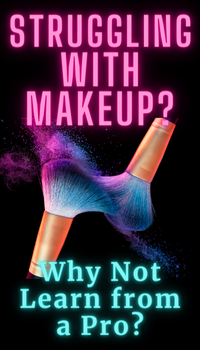Problems? What Problems?
I want to begin this article with a hypothetical question. Don’t think about it — your immediate reaction is important.
What would you do if you saw yourself out dressed in a public place? Would you stare? Would you feel embarrassed? Would you feel disgusted? Would you laugh? Would you freak out? Would you be verbally or physically abusive? Or would you not give a damn?
It’s a question I’ve pondered at length over the past few years … which actually defeats the purpose of the exercise, because I wouldn’t have the chance in a real-life scenario to sit down and think it through rationally. But how we’d react in such an impromptu situation is a direct consequence of how we feel about ourselves — if we hate ourselves for being crossdressers, we project that hate onto other people … and if we can distance ourselves from our transvestism by denigrating someone else for theirs, then all the better for us. This is internalised transphobia.
I can say with confidence that all crossdressers in the western world have experienced internalised transphobia at some time — it’s the reason that most of us live in the closet, it’s the reason why support networks are secretive, and it’s thus the reason why there remain so many damaging myths and lies surrounding what crossdressers are and what they do. It’s also the reason why there’s so much infighting within crossdresser networks as to the “correct” way to present, and why I in particular have suffered complaints, insults, and threats at the hands of many crossdressers who regard my mode of presentation as unacceptable. This began in 1999 when I broke with convention, and has since shown up whenever and wherever I’ve met traditionalists. Although I’ve occasionally been ridiculed and abused for being a crossdresser by a member of the public, it’s only inside the crossdressing community that I’ve been criticised for my specific mode of presentation.
So what about outside the transcommunity? Well, I come from a pretty screwed-up family. My father died in 2004 after a ten-year illness, and my mother tried to force my only sibling — a sister — to swear to secrecy to make sure that I wouldn’t turn up at his funeral wearing a skirt. My sister refused to play this nasty game, but the news reached me too late, and I missed the funeral anyway. This was my mother’s most hateful move in a “battle of wills” which she and I had been waging for forty years — she was the person who had me locked in my room at night and when the family went out; she was the one who dragged me from one child psychiatrist to another until she found one who’d agree that something had to be done about my “perversion”; she was the status-oriented person who lost face when, as inevitably happened, the neighbours got to find out about her crossdressing son. Nowadays, this bitter old woman won’t visit me, and won’t allow me to visit her; however, she knows that the battle of wills is over — and she knows I’ve won, because my crossdressing is, by my own choice, public knowledge.
I mentioned in my first article that I’d been heckled, had gravel thrown at me, and that someone tried to run me over, in my local town centre. The best thing to do in such an instance is to label the location as a no-go zone. While I’m happy to challenge individuals, tackling any type of problem in a run-down town of 140,000 people should be left to those better qualified to do so; if they need my expertise and experience in an advisory capacity, they need only ask for it. However, that’s not to say that I should feel like a prisoner in my own home — I left my closet years ago, and I have no intention of being frightened back into it. But I’d be unfairly misrepresenting my case if I didn’t include some noteworthy — even amusing — incidents.
I joined BT in 1980 (at the Post Office Research Centre, as it was in those days) on the same day as, and in the same group as, a young Polish Catholic man. Despite following different paths within the company, we met for lunch almost every working day for nearly twenty years … until the first day that I wore a skirt. Over the next few months, he’d sit with me if I was wearing trousers, and even city-shorts … but not if was wearing a skirt. Eventually, I wore a skirt or a dress every day, and I rarely saw him again. Several people asked me about his odd behaviour, so he’d clearly drawn attention to his bigotry … which was probably unwise for a devoutly religious man working in a company that had just begun to recognise the commercial value of diversity. I could have reported him, but I had more important things to do (apart from my mainstream technological work) — such as designing a transgender diversity policy for this global company. Incidentally, I later heard that Mr Polish Catholic was referring to me as The AntiChrist — which, as an atheist, I regarded as a very high honour indeed! I’d love to have known whether he was actually a closet crossdresser battling his internalised transphobia …
Then there was the workman at my house, who launched into a spontaneous rant, calling me “a miserable arsehole” who “needed [his] fucking head examined.” The “miserable arsehole” comment was because I’d said that it wasn’t my job to supply him with endless cups of tea; I assume that his suggestion that I needed my head examined was because I’d gone to the shops earlier wearing a red and black dress. In any event, he came as close as anyone’s ever come to punching me. His boss made him apologise, then immediately fired him.
And what of the cold-caller trying to sell double-glazing appointments? It’s rotten job, and someone has to do it, but this yob should have taken my polite doorstep refusal seriously. Instead, he stood in the middle of the street and yelled “fucking pervert” at my house. I didn’t see or hear it, but my two visitors did. Co-incidentally, they happened to be heavily-built plain-clothed Police investigators interviewing me about a homophobic incident originating within the Force; they went outside, and chased and detained the surprised perpetrator. Wearing a sundress and flip-flops, I watched as they frog-marched him back down the road. “What do you want us to do with him?” I resisted the temptation to reply “book ‘im, Danno,” deciding instead on “caution him, and let him go; I don’t think he’ll do it again.” I don’t see the point of making enemies unnecessarily.
Pre-school kids in supermarkets are a rich source of anecdotes. Every time I hear “muuuuum …”, I know what’s coming. “… why is that man wearing a dress?” A smile or a wink at the embarrassed parent is enough to defuse the situation. It’s amazing that, even at such an early age, kids know something’s wrong; gender stereotyping is very-much alive. But occasionally, older kids are allowed to run loose. I’m always alert to my surroundings, and I know when I’m being followed … so one day, I turned into an aisle and waited. A bunch of kids, camera-phones in hand, burst around the corner, and we came face-to-face. “Yes?” I asked, gruffly. “Whadyou want?” “Oh! Sorry miss (sic). We’re looking for our friend.” “Listen — if I see you following me again, I’ll have you arrested. Now piss off!”
Last Spring, I was in the orchestra for a performance of Oklahoma! in a local village hall, and was in the gents’ toilet at the interval washing my hands. The door opened, and I saw a reflection of a man’s face in the mirror. He looked me up and down quickly, said “Oops, sorry!” and disappeared. A few seconds later, the door opened once more, just a few inches this time, and the same man’s face peered around it. “Are you in the right toilet?” he asked. “Yes,”I replied, “are you?” The face stared at me, blankly. It was a mean comment, but I couldn’t resist it. What I didn’t know was that he’d already gone into the ladies’ toilet by mistake before entering the gents’ the first time and encountering me wearing a skirt. I wonder what he was thinking at that moment …
In an assessment of the response to my unconventional presentation, I’ve discounted the internalised transphobia of the crossdressing community, as well as the response of family members, which will invariably be coloured by power complexes, parental expectations, sibling rivalry, and so on. What’s left may make uncomfortable reading for some crossdressers, who’d rather run a mile than challenge even a benign abuser. Such accounts may also be used as “evidence” that the streets (and the supermarkets) are unsafe. But let’s put this into perspective: I can think of fewer than ten such incidents since 2000 — that’s probably about the same as what a disabled person experiences, because someone who heckles crossdressers is likely to consider anyone fair game. And if you happen to run into a genuine psychopath, what you’re wearing will probably be of little consequence.
As I implied above, I can frequently be seen playing the piano for concerts in local halls, theatres, churches, and for private functions. Whatever goes through the mind of a typical audience member when they first set eyes on me, I soon become simply “the accompanist.” udging a book by its cover is a 500-million-year-old survival instinct, which has only been tempered in the extremely recent past by human societal expectations, morals, and laws … one of which, of course, is the wearing of any form of clothing! Nevertheless, most people I meet are decent human beings whose behaviour is entirely governed by these superficial social codes, and in the right environment, the danger to crossdressers is minimal or non-existent.
So … returning to the original question — how would I react if I saw me in public? Of course, it’s impossible for me to think as a non-crossdresser would think, but my natural reaction to other unusual and interesting scenarios suggests that I’d be curious, and that I’d want to investigate. I’d want to know why this individual dresses the way he does. I’d want to know what inspires his self-confidence. I’d want to know how other people react. When he tells me that the vast majority of people he meets don’t seem to care particularly much, and that most don’t even seem to notice him, I think I may be a bit skeptical.
But that’s probably the vestiges of my internalised transphobia rearing its head.
Category: Transgender Body & Soul, Transgender Opinion












Yeah, I noticed that!
Interesting that no-one seems to be having a shot at you for once Graham!